Teaching Methods
Parallel Session
3rd Shaw-IAU Workshop on Astronomy for Education
Session timeblocks
Thursday Oct. 14, 2021
UTC: 3 p.m. -
4:30 p.m.
America/New_York:
11 a.m.-
12:30 p.m.
Friday Oct. 15, 2021
UTC: 8:30 a.m. -
10 a.m.
America/New_York:
4:30 a.m.-
6 a.m.
Schedule
-
Cultivating creativity and Astronomy Education
Thursday Oct. 14, 2021
UTC: 3 p.m. - 3:15 p.m. America/New_York: 11 a.m.- 11:15 a.m.Friday Oct. 15, 2021
UTC: 8:30 a.m. - 8:45 a.m. America/New_York: 4:30 a.m.- 4:45 a.m.In this talk I will briefly describe the 4 P's of creative learning: Projects, Peers, Passion and Play. Despite being quite simple ideas, applying them to the design and facilitation of creative learning experiences is far from easy. The 4 P's do not define a method or a specific practice: they are guiding principles that help educators ask new questions, challenge assumptions, and inform their practice. I'll highlight some current experiences in astronomy education that, in my opinion, resonate with this framework. I hope that the 4 P’s of creative learning can be a useful framework for teachers to imagine and develop meaningful learning experiences, helping their students grow as thoughtful and curious inhabitants of the universe.
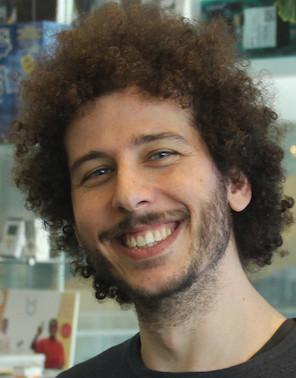
Carmelo Presicce (MIT)
For more information about this talk click here
-
Astronomy Education as a means to transform our worldviews
Thursday Oct. 14, 2021
UTC: 3:15 p.m. - 3:30 p.m. America/New_York: 11:15 a.m.- 11:30 a.m.Friday Oct. 15, 2021
UTC: 8:45 a.m. - 9 a.m. America/New_York: 4:45 a.m.- 5 a.m.The way we see the world is a construction whose characteristics are historical, cultural, social, psychological and strongly associated with teaching and learning processes, mainly through formal education and outreach. We will discuss what elements the actions of Education in Astronomy should have to contribute to the construction of solidarity world views, respectful of diversity and modern in terms of the relationship of human beings with the sky in our time, with projection to a future in peace. and social harmony, linked to the sky.
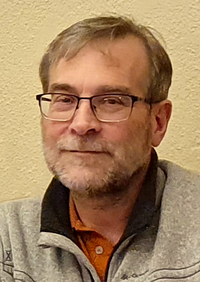
Camino Néstor (Complejo Plaza del Cielo - CONICET-FHCS UNPSJB)
For more information about this talk click here
-
What all teachers of primary and lower secondary education should know from teacher’s perspective
Thursday Oct. 14, 2021
UTC: 3:30 p.m. - 3:40 p.m. America/New_York: 11:30 a.m.- 11:40 a.m.Friday Oct. 15, 2021
UTC: 9 a.m. - 9:10 a.m. America/New_York: 5 a.m.- 5:10 a.m.Contents of school education are defined by curriculum standards in each country or territory. Though it is not easy to meet all the demands, the standards are based on years of discussions, therefore, the standards indicate what all teachers should know; we already have the answer. On the other hand, there are difficulties teachers face in teaching astronomy. Based on papers and interviews with teachers about their work in Japanese classrooms, I will present what general teachers in Japan want to know about astronomy for their teaching work. The presentation focuses on primary and lower secondary education because many teachers in the levels are not always well versed in astronomy, therefore, what they want to know indicates what all teachers should know from the perspective of teachers.
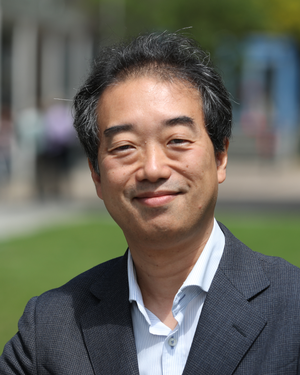
Tomita Akihiko (Wakayama University)
For more information about this talk click here
-
Challenge in Teaching Astronomical Causes of Seasons in the Tropics
Thursday Oct. 14, 2021
UTC: 3:40 p.m. - 3:50 p.m. America/New_York: 11:40 a.m.- 11:50 a.m.Friday Oct. 15, 2021
UTC: 9:10 a.m. - 9:20 a.m. America/New_York: 5:10 a.m.- 5:20 a.m.Tropics, especially close to the Equator experience mild changes of temperature during the year, so seasons are marked primarily by the bimodal rainfall pattern which is broken by proximity to ocean, resulting in weakly defined seasonal changes. Astronomical causes of seasons are taught using the northern "gospel" of summer, winter, autumn and spring without understanding the regularity and profound seasonal changes experienced away from the tropics. Hence the local seasons as well as its astronomical causes are not properly understood and misconceptions and wrong ideas are introduced at a young age. We show how this problem is reflected in Tanzanian learning, especially when local language (Kiswahili) terminologies are used to describe seasons.
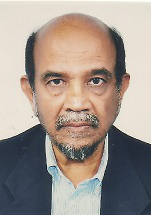
Noorali Jiwaji (Open University of Tanzania)
For more information about this talk click here
-
Challenge-based learning for astronomy education
Thursday Oct. 14, 2021
UTC: 3:50 p.m. - 4 p.m. America/New_York: 11:50 a.m.- noonFriday Oct. 15, 2021
UTC: 9:20 a.m. - 9:30 a.m. America/New_York: 5:20 a.m.- 5:30 a.m.Challenge-based learning (CBL) has emerged in the last decade as a response to the complexity of problems facing society in the 21st century. This way of learning prepares students for the future of multi- or inter-disciplinary work and decision-making, with emphasis on self-awareness and teamwork, among other things. Students work on complex open-ended projects, often directly related to societal challenges in collaboration with “challenge owners” such as government or societal organisations, university researchers or industry. CBL has been applied for learning in high-schools, universities, companies and scientific organisations such as CERN. I would discuss ideas how one could use CBL to tackle societal issues through astronomy education.
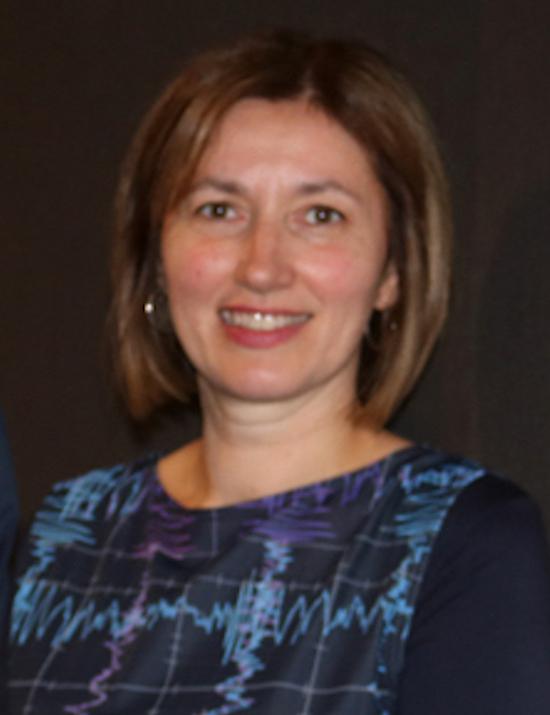
Jasmina Lazendic-Galloway (Eindhoven University of Technology)
For more information about this talk click here
-
Discussion Panel: Teaching Methods
Thursday Oct. 14, 2021UTC: 4 p.m. - 4:30 p.m. America/New_York: noon- 12:30 p.m.
Friday Oct. 15, 2021
UTC: 9:30 a.m. - 10 a.m. America/New_York: 5:30 a.m.- 6 a.m.Chair:
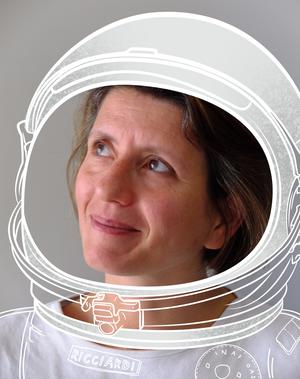
Sara Ricciardi
Panel: Camino Néstor
(Complejo Plaza del Cielo - CONICET-FHCS UNPSJB), Noorali Jiwaji
(Open University of Tanzania), Jasmina Lazendic-Galloway
(Eindhoven University of Technology), Carmelo Presicce
(MIT), Tomita Akihiko
(Wakayama University)
Posters
-
Astronomy Education Outreach with Younger Community Through Online Service-Learning Approach
Othman Zainon (Department of Geoinformation, Faculty of Built Environment and Surveying, Universiti Teknologi Malaysia, 81310 Johor Bahru, Johor)
Astronomy involve concepts that related to everyday phenomena. Astronomy is also about the science of celestial observation and evaluation involving celestial objects that happened outside the earth's atmosphere. In Malaysia, astronomy topic has been adapted in various of school levels especially in science and mathematics syllabus. However, some of the younger communities’ have problem in understanding about the basic concept of astronomy. Therefore, Universiti Teknologi Malaysia Astronomy Co-Curricular students have carried out an online Service-Learning approach for transferring the astronomy knowledge to the younger students. This innovative astronomy service-learning approach consists of five activities namely Astronomy Talks, Demonstration, Hands-on, Quiz and Competition.
-
Scaffolding from Astronomers -Delivering lessons to schools and STEAM education-
Hidehiko Agata (National Astronomical Observatory of Japan - NAOJ)
National Astronomical Observatory of Japan (NAOJ) launched the 'Fureai Astronomy' education and outreach program in 2000. This is an activity in which NAOJ staff members give classes on stars and universe at elementary and junior high schools, with the aim of getting to know each student individually. In the 2020 fiscal year of the Corona pandemic, in addition to the traditional delivery of classes to schools, online classes using Zoom, etc. were also conducted. In the case of online classes, it is possible to participate from outside Japan. In addition to a discussion of the differences between face-to-face and online, this talk will present examples of scaffolding from astronomers that can be expected to lead to STEAM.
-
Teaching undergraduate astronomy classes with active learning strategies
Newton Figueiredo (Universidade Federal de Itajubá)
Active learning methods have been successfully used to teach science, technology, engineering, arts and math (STEAM) subjects at all levels of formal education. In this talk I will show what can be accomplished by combining three of these methods - flipped classroom, just-in-time teaching and peer instruction - to teach astronomy to undergraduate students enrolled in STEAM courses. I will also present effective ways the instructor can use, under this approach, to assess the students’ learning without written exams.
-
The significance of doing practical and experimental astronomy
Carles Schnabel (Planetari Fora d'Òrbita and Observatori Astronòmic Garraf), Rat Parellada (Planetari Fora d'Òrbita and Observatori Astronòmic Garraf)
Astronomy is explained in an encouraging but theoretical way. They provoke sensations of admiration in the face of violent and spectacular phenomena. Their meaning is seldom understood and contextualized. We need to raise questions about things we can see, instead of giving answers about what we never see with our own experience. Everyone has access to the sky and his movements. Main stars are easily observable and measurable. You can experiment with your own body and simple materials. Once the basic concepts are well established, we will be able to face them with the guarantee that the receiver will want to achieve a clear and contextualized understanding of the concepts of the physics of the universe.
-
The Transferential Relationship From The Discourses Between Children And Monitors In An Observatory
Gleici Kelly de Lima (Doctoral Student at the Graduate Program in Education for Science at UNESP / Bauru, Professor IFC / Rio do Sul), Rodolfo Langhi (São Paulo State University (Unesp), School of Sciences, Astronomy Observatory)
The main purpose of this research was to interpret the discourses of the transferencial relations between children and monitors teachers in an astronomical observatory. Were concepts of transference and discourse is introduced highlighting the psychoanalytic aspect as reference to understand the teacher-student relation, during a class visit in an astronomical observatory. Is theoretically and methodologically based on Education, Psychoanalisys and Astronomy Education references. The results obtained by the analysis of the four lacanian discourses of the unconscious point to traces of three approaches to the discursive transferential relationship between monitors and children at the observatory: authoritarianism, excitability and otherness.




